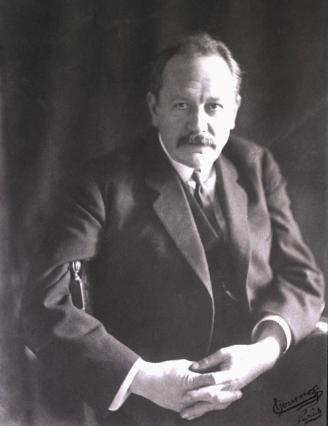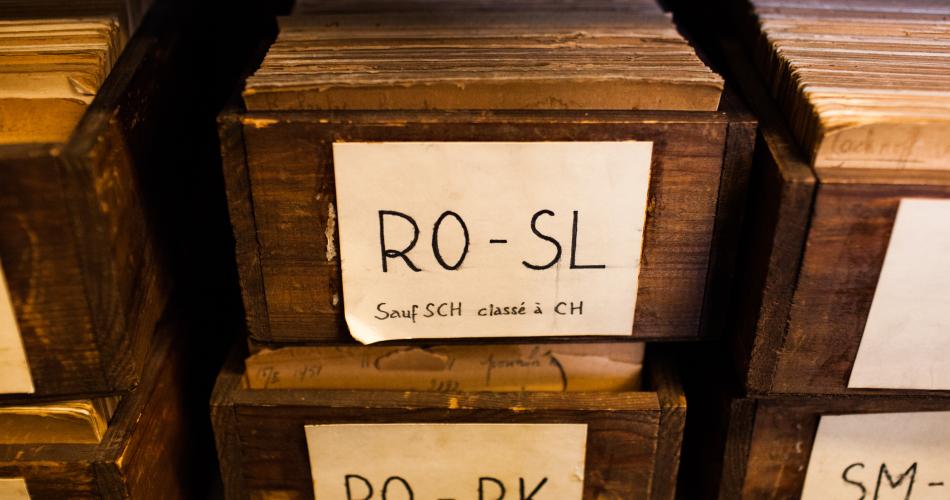Online archives
Ofpra has digitized some of the nominative files inherited from the institutions that preceded it in the protection of refugees. You can access them through an online Archival portal.
You can contribute to their indexation and thus improve the portal !
Note : Only the archives of refugees from the Russian Empire, Armenian refugees, and Georgian refugees who were in France between 1924 and 1952 are available online.
What are these documents ?
These are the protection records of Russian, Armenian and Georgian refugees holding the "Nansen passport", who did not apply to Ofpra after 1952.
In France, those refugees were protected by former consular offices and community representations transformed into national "refugee offices". These offices, whose creation was confirmed in France by the presidential decree of January 11, 1930, worked under the dual supervision of the League of Nations and the French Ministry of Foreign Affairs before 1942. They had a central office in Paris and regional delegations. During the period of the French State in Vichy, they were replaced by the Bureau for the Interests of Stateless Persons (BCIA) at the Ministry of Foreign Affairs (1942-1944). In 1944, they were re-established.
Until the creation of Ofpra, these offices operated under the control of the French Delegation of the International Refugee Organization (IRO) created in Geneva in December 1946, whose aim was to assist and protect refugees from the interwar period, but also refugees from the end of World War II.
Files of Spanish Republican refugees, Eastern European refugees who came to France after World War II and refugees of other nationalities (e.g. refugees from Laos, Cambodia and Vietnam, refugees from South America, African refugees, etc.) are not digitized and are therefore not available online. Those files are only available in paper ; you can consult the "On-site archives : nominative archives" section for more information.
How to get access ?
Ofpra provides Internet users with an access portal to its digital collections, which contain a lot of personal data. In order to comply with the laws for putting online public archives that are less than 100 years old and contain personal data, access to this portal is subject to mandatory registration, validated by the agents of the Mission Histoire.
- Click on « Pas encore de compte ? » ("No account yet ?") pour vous inscrire
- Carefully complete the registration form, including the reason for your request
- You must then wait for the agents of the Mission histoire to validate your registration (validation submitted to work schedules)
- Once the registration validated, you can access the Archival portal with the e-mail address and password you have chosen
What kind of documents can be seen ?
The documents in the Archival portal were drawn up and/or kept by the Russian, Georgian and Armenian refugee offices and, between 1942 and 1945, by the Bureau for the Interests of Stateless Persons (BCIA) which replaced the offices during the Vichy regime. They consisted mainly of certificates establishing the applicant's status as a stateless refugee and his origin. These certificates sometimes include a photograph. They are accompanied by various types of documents (other certificates for marriages, successions, various attestations, letters, etc.).

Some documents, often produced by refugees or stateless persons, may come from different organizations, associations, refugee committees, etc. Some are written in foreign languages (Russian, Western Armenian, Georgian, and German in particular).
In the portal, you will also find a presentation of the archives, research tips, and a blog with many articles of interest to genealogists (especially on the complementary archives fonds).
Vassili Maklakov, former director of the Central Office for Russian refugees, then head of the Russian section of Ofpra.
Assists in indexing digitized documents
The documents on this portal are only partially indexed.
On some of the documents, some essential information has already been entered and can be found via the « Search ». On other documents, however, no nominative information is indexed, and therefore the document cannot be found. Collaborative indexing allows the work to continue so that eventually all documents can be searched by name.
By indexing, you facilitate your future research, but also those made by other Internet users. You participate directly in the enhancement of the site, and refugee history.
In the Blog section, you will find a tutorial on indexing that explains step by step how to participate.
Access our online Archival portal
